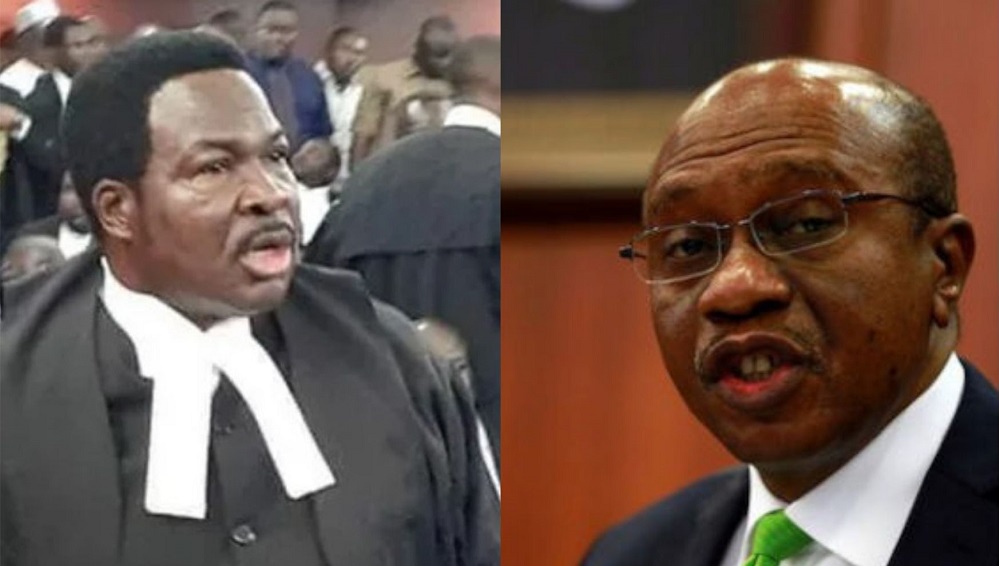CBN Governor Can Run For President, Ozekhome Tells Court
The Governor of the Central Bank of Nigeria, Godwin Emefiele, has urged the Federal High Court sitting in Abuja to order that he “cannot be hindered, stopped or precluded from participating, voting or being voted for at the convention or Congress of any political party of his choice for the purpose of the nomination of candidates for the election to the office of president or any other office under the 1999 constitution (as amended).”
The application was filed on his behalf by Chief Mike Ozekhome SAN while the Independent National Electoral Commission and the Attorney General of the Federation, Abubakar Malami SAN are the respondents.
Advertisement
The case was slated for mention on Monday before Justice A.R. Mohammed.
Emefiele has been in the news over the possibility of him contesting for the presidency under the All Progressive Congress platform.
Several lawyers have expressed opinions on the issue.
In his originating summons, Ozekhome asked the court whether the provisions of Section 84(12) of the Electoral Act (which bars political appointees from voting or being voted for ) which are inconsistent with the provisions of the Section 137(1)(G) of the Constitution which have been declared so by a court of competent jurisdiction can be relied upon by the defendants to disqualify the plaintiff from contesting election to the office of the president.
Advertisement
Ozekhome further argued in his affidavit in support that irrespective of Section 84 (12) of the Electoral Act, the plantiff is not affected by these provisions as he is not a political appointee.
According to his court processes, the CBN as a Government agency, is owned by the Federal Government and is part of the public service in Nigeria which encompasses departments and agencies including the one wherein Emefiele is governor.
“That the plaintiff, as Governor of the CBN is a person employed in the public service of the federation.
” That consequently, the relevant section of the Constitution applicable to the plaintiff is Section 137(2) of the 1999 constitution as amended which provides thus: A person shall not be qualified for election to the office of the president if being a person employed in the civil or public service of the federation or of any state, he has not resigned, withdrawn or retired from the employment at least thirty days before the date of election.”
He contended that the constitution, which is the highest law of the land, states that his client should resign 30 days before election, not 30 days before a political party’s primaries as envisaged by Section 84 (12) of the Electoral Act 2022.
Advertisement
Ozekhome further asked the court to declare that the provisions of Section 84 (12) of the Electoral Act 2022, being inconsistent with Section 137 of the 1999 constitution are inconsistent and cannot be relied upon.
“A declaration that by the combined provisions of Section 84 (3) of the Electoral Act 2022 and Section 137(g) of the Constitution, which require a public officer to resign, withdraw or retire from his employment at least 30 days before presidential election, the plaintiff cannot be mandated to resign his position as Governor of Central Bank of Nigeria earlier than 30 days to presidential election.”



